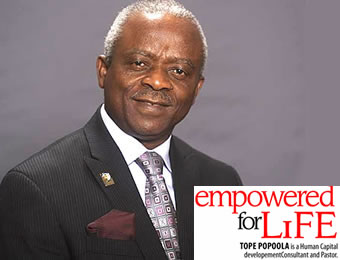The story begins in 2007 with the protagonist Phiona Mutesi as a nondescript nine-year old slum girl practically sentenced, to all intents and purposes, to a life of grinding, hapless and seemingly hopeless poverty and ends five years later in 2012 with Phiona as an international chess player and youngest national Grand Master with enough resources to buy her family a house as she once had cause to promise her mother. What a fairy-tale-proportion trajectory! Except that Phiona’s story is not a figment of a fantasy writer. Based on a true life story, the film enacts the odyssey of nine-year old Phiona Mutesi who defies the debilitating odds of life in a Ugandan slum called Katwe to become the national chess champion within five years of being introduced to the game! Apart from the riveting entertainment that it provides, Phiona’s grass to grace story is about hope and possibility. It offers several insights that anyone who believes that his condition in life is hopelessly locked in the prison of an unprivileged background and its attendant limitations can learn from and put into practice to prove that a person’s background is not good enough reason for his back to remain on the ground.
However, it is not only about those who feel hopeless. There are myriad lessons even for those who become complacent and over-confident in success as well as those who simply desire to understand the principles of greatness. As we prepare to enter into another year, I consider it pertinent to share on this page some of the insights I gained from the film. Raised by a widowed mother in a slum beleaguered by grinding poverty, Phiona spent the better part of her early years hawking maize with her siblings with target sales of one thousand Ugandan shillings if her family of five was to feed! Her life was however to take a new turn with a fortuitous chancing on a gathering of other ghetto kids in a shed while on the trail of her younger brother who seemed to have developed the habit of disappearing soon after the day’s sales rounds. There she met a motley group of ghetto urchins like herself learning to play chess under the tutorship of Coach Robert Katende, a young engineer who had taken up a poorly paid temporary employment with a missionary agency with the challenge of helping to transform the lives of children in the slums through sports – at least until a better job as an engineer would show up. He chose the game of chess as his weapon. Robert resolved to throw himself into this challenge as if his life depended on it. He decided to train those children to become champion players who would take on privileged city kids and defeat them in the elitist game.
Coach Katende’s life is a clear illustration of the fact that until life offers you what you love, you should learn to love what you have. Contentment is not about containment. It is about enjoying where you are on your way to where you are headed. Most people complain and whine their way through life. They mumble and grumble about thorns and forget to smell the rose. The vacancies at the top are not filled by people who have not mastered the art of making the best use of where they are right now while working towards the change that they desire. Every worthwhile destination in life requires a peculiar journey through contours of valleys, mountains and sometimes detours.
Katende’s life also clearly exemplifies the lesson that we find our own greatness when we help others find theirs. The strongest warrior is not he who fights and wins alone. It is he who can win with and through people. Furthermore, Katende teaches us that one attribute of great leaders is the ability to see diamonds in the rough, to see greatness in people that the society of the privileged would not touch with a ten-foot pole. He saw in those children what even their parents and their slum environment did not see. He engaged them in their present but prepared them for their future. He made them see that the ghetto may have been the debut of their lives but it should not be allowed to be the denouement. This is what great leaders do! They take their followers from where they are to where they ought to be. It is a tough call fraught with several challenges that daunt the bravest of men. But a true leader signs up for the process as well as the destination. Didn’t a sage once say that no one enjoys omelet without cracking eggs?
Phiona came into the shed, took a long look at what was going on and, even though she did not have a clue what it was all about, wanted to be part of it. Harangued about her body odour by a gang of bullies in the shed, she stood her ground and took one of them on with a ferociousness that instantly earned her the respect of everyone else. This caught the attention of the coach who welcomed her on board with the words, “Welcome; a fighter. This is a place for fighters” and a cup of hot, answer-to-prayer porridge! It also earned her her first lesson in chess. In life, you must earn your space. Even if it was handed to you on a platter of gold, you must demonstrate that you are worthy of it. You have no right to occupy a space for which you are not ready to put up a fair fight. Success hardly happens on the path of least resistance…. Continued
Remember, the sky is not your limit, God is!






